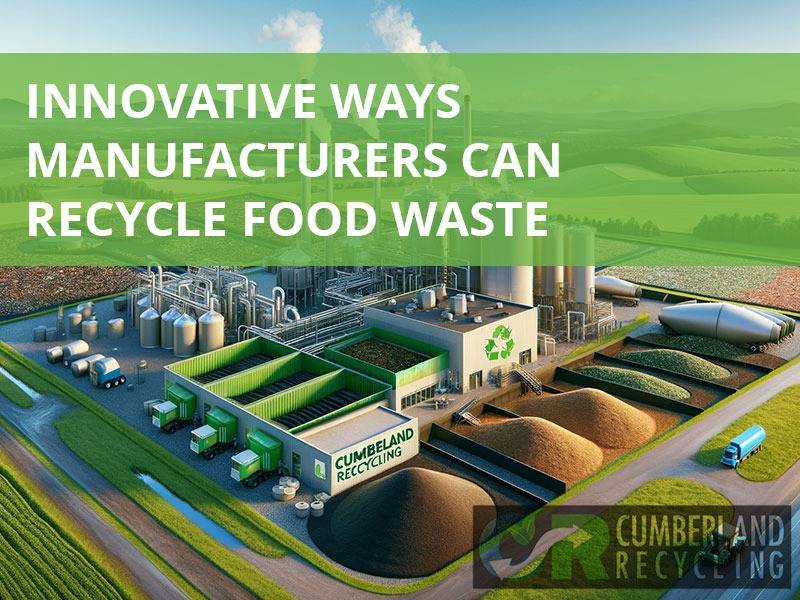In the bustling corridors of food manufacturing, waste is an inevitable byproduct. However, what manufacturers do with this waste can turn the tide towards sustainability. Recycling food waste isn’t just an environmental obligation; it’s a business opportunity ripe with potential. At Cumberland Recycling, we’ve seen firsthand the transformative impact of effective food waste management.
The Scale of Food Waste
The numbers are telling. According to the United States Environmental Protection Agency (EPA), food waste is the largest component of disposed waste by weight in the United States. This presents a significant challenge and an opportunity for food manufacturers to innovate and contribute positively to the environment.
Recycling Food Waste: The Path Forward
- Composting: Organic waste from food manufacturing can be converted into compost, a nutrient-rich material beneficial for soil health. This not only diverts waste from landfills but also supports sustainable agriculture.
- Anaerobic Digestion: This process uses microorganisms to break down food waste, producing biogas and digestate. The biogas can be used as a renewable energy source, while the digestate is an effective fertilizer.
Cumberland Recycling: Pioneering Sustainable Solutions
At Cumberland Recycling, we specialize in creating bespoke recycling solutions for food manufacturers. Our engagements span from Chambersburg, PA, to Tampa, Houston, Iowa, and western Minnesota. Here’s how we make a difference:
- Customized Recycling Programs: We understand that each manufacturing facility is unique. That’s why we tailor recycling programs to fit the specific needs of our clients, ensuring efficiency and effectiveness.
- Expert Partnerships: We collaborate with local farmers and other businesses to create a sustainable cycle for food waste. This helps in transforming waste into valuable resources.
- Innovative Technology: Leveraging cutting-edge technology, we streamline the recycling process, making it easier for manufacturers to participate in sustainable practices.

The Benefits Are Clear
Recycling food waste offers a multitude of advantages:
- Reduced Environmental Impact: Less waste in landfills means reduced greenhouse gas emissions.
- Economic Savings: Effective recycling can cut down on waste disposal costs and potentially generate revenue.
- Enhanced Brand Image: Consumers are increasingly drawn to environmentally responsible companies.
Join the Movement
The journey towards zero waste is a collaborative effort. As a food manufacturer, your role in this movement is critical. By partnering with Cumberland Recycling, you can turn your waste into a resource, paving the way for a greener, more sustainable future.
We invite you to call us to learn how we can help transform your food waste challenges into sustainable opportunities. Together, let’s redefine waste management and contribute to a healthier planet.
In Conclusion
Recycling food waste is more than a regulatory compliance issue; it’s an opportunity for innovation and leadership in sustainability. At Cumberland Recycling, we are committed to guiding food manufacturers through this transformative journey. Contact us today to explore how your waste can become the following resource in building a sustainable world.

